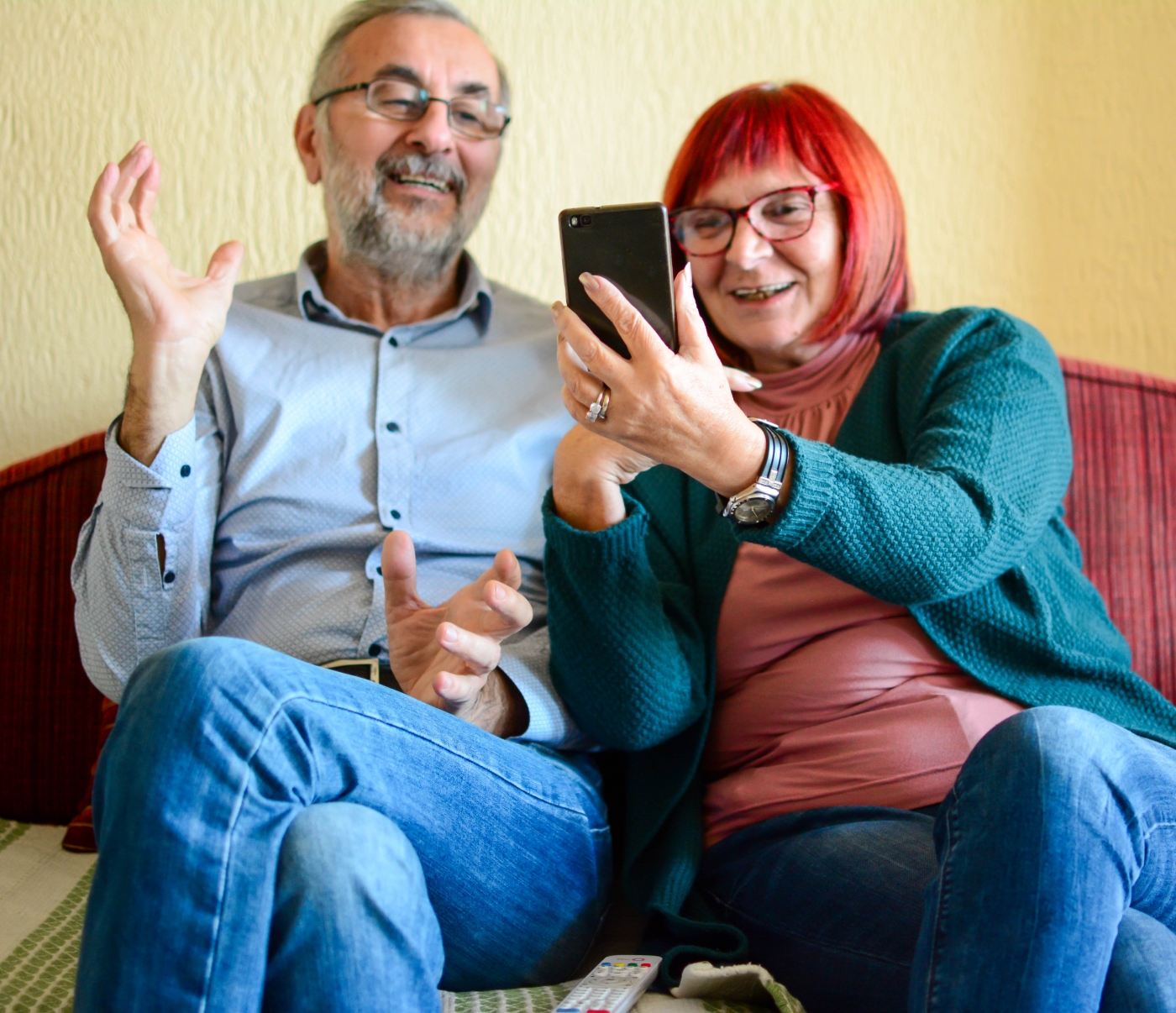The right smartphone for older users depends on wh at they plan to do with the phone, their priorities and also how comfortable they already are with technology.
at they plan to do with the phone, their priorities and also how comfortable they already are with technology.
Smartphones for older people should be accessible, easy to use and not require users to navigate a lengthy, elaborate setup process. A major consideration should be a crystal-clear call sound with a simplified user interface the other main priority: big, clear, legible displays, simple, intuitive interfaces, and effortless functionality.
Key features to consider when choosing a smartphone
Some of the main considerations when choosing a smartphone for an older user should include:
- Battery life. Can it be taken out all day without needing recharging?
- Fairly priced phone. If it isn't going to be used very much, is it worth paying for a top end phone or a phone with an expensive monthly contract?
- Durability. Can the phone cope with being dropped?
- Simple interface, with easy to use intuitive navigation.
- Big screen. Minimum of 5-5 inch should offer plenty of room for less accurate button presses and ensure visibility of everything onscreen.
- Large text and icons for internet access, calls, messages and camera on the home screen.
Other considerations may also include:
- Hearing aid compatibility and are the speakers loud enough?
- SOS or Emergency Call for Help buttons.
- Do you need a built-in GPS? This can be used to notify loved ones about location. Or the option for families to remotely manage the phone.
- Does it come with a full training book? This will help new users really learn the ropes of using a smartphone.
Operating system – Apple or Android ?
Smartphones have dedicated operating systems, with the vast majority of devices running either Apple's iOS or Google's Android. While any of the operating systems can be used for standard mobile phone voice calls, each platform has its strengths and weaknesses depending on which additional smartphone features you will use the most. Here is a breakdown of the pros and cons of two main platforms, with older users in mind.
iPhone
Pros:. Easy to set up right out of the box, featuring a touch interface that is so intuitive that anyone from two to 102-years-old can effortlessly interact with the device. The iPhone is easy to customise, but also ideal for anyone who wants a smartphone that just works.
As well as offering standard features like email, calendar, internet and messaging, the iPhone also boasts the highest number of applications (apps), such as Skype and Facebook.
You can also read books on the device, using Apple’s eBooks or Amazon’s Kindle Fire app.
Cons: The main downside of iPhones is the high price, although you may be able to buy a second hand phone at a discounted price. With an iPhone you are tied into buying apps and purchasing music through the iTunes store.
Android
Pros: Google's Android OS. Android phones tend to be cheaper than the iPhone. Because Android is to some extent open source, however, individual phone handsets have different versions of the interface.
Cons: The best are iPhone-like in their simplicity, the worst cramped and crowded, ugly to look at, and difficult to use. When choosing an Android phone It's important to for you or the elderly person to try the model out before they buy it.
These articles give advice on specific models that are suitable for older users:
https://www.techradar.com/uk/news/the-10-best-phones-for-seniors
https://www.techadvisor.co.uk/test-centre/mobile-phone/best-phone-older-person-3648030/
Last updated January 2025